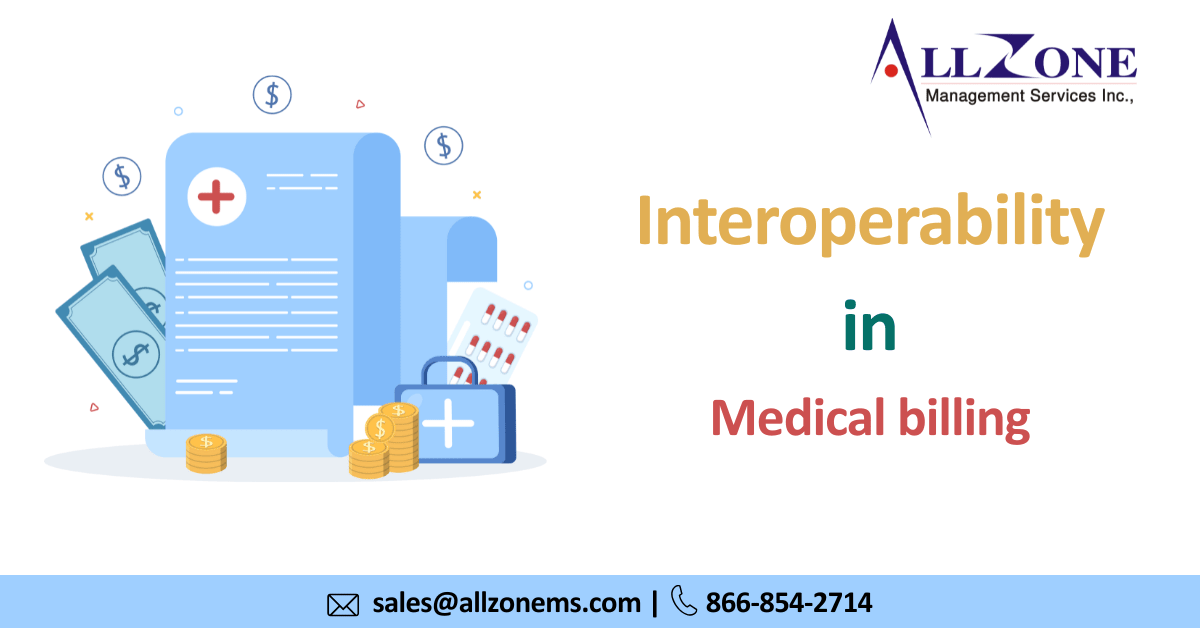Interoperability role in medical billing: A growing number of physicians practice in an interconnected world, which means that medical practices and hospitals need to seamlessly share information in order to be able to provide good health management and ensure that patients are treated safely and effectively.
Health care interoperability is an important concept that has been placed at the forefront of many organizations following the passage of the 21st Century Cures Act. The legislation provided for the application of strict penalties to organizations that fail to ensure the exchange of patient information or are found to be blocking the exchange of patient information, which can be defined as any practice which may interfere with the use, access and exchange of electronic health information.
According to the Health Insurance Portability and Accountability Act regulations, electronic protected health information (EHI) is a term used to define any electronic protected health information contained in a specific record, regardless of the fact that that record is either used or maintained by or for a covered entity. Generally, the designated record set in a physician’s practice will include both medical and billing records about a patient, as well as other records that a physician uses, in whole or in part, to make decisions regarding the patient.
A simple way to explain the Cures Act is that it was designed to eliminate barriers to interoperability while improving the care patient receives.
The ideal scenario would be for the connection and integration of platforms and systems across a wide range of platforms and systems to occur seamlessly. Despite this, many of the issues surrounding medical billing, payer denials, and the ability to connect platforms are initially overlooked in their importance for physicians as they seek to get paid correctly, efficiently, and accurately the first time around. In fact, this does not have to be the case.
Several technologies are available on the market today that are designed to identify problematic claims before they are submitted in the first place and tools are available that help doctors hold payers accountable and ensure they receive every penny they are due so they can be assured of being paid appropriately.
-
Interoperability role in medical billing: Types of effective interoperability
There are four key levels of data interoperability in the healthcare industry, according to the Healthcare Information and Management Systems Society:
Foundational: Assists in establishing interconnectivity requirements for systems and applications in order to securely communicate data between them.
Structural: Assuring that data exchanges are formatted, syntaxed, and organized according to prescribed rules.
Semantic: Assisting with the development of common or standardized definitions that can be understood by all.
Organizational: Considerations related to governance, policy, regulation, or law are included in this category.
A positive impact can be seen across the four levels above, leading to improved efficiency in medical practices, an increase in data-driven decisions, the creation of streamlined workflows, and a better level of engagement and satisfaction with patients.
-
Goals of health care interoperability
Interoperability, in its simplest form, allows for faster access to patient care, allowing providers to manage conditions more effectively, and speeds up the delivery of care. The other aspect of interoperability is that, in some cases, it can actually reduce the burden on physicians as well, and this should include reducing their financial burdens as well.
Throughout all of the healthcare industry, clinicians and physicians are well aware of the increasing burden they face when it comes to properly coding, documenting and billing for their services. Patient and medical staff alike continue to be affected by delays in providing care due to prior authorization requirements or medical necessity requirements.
-
Benefits of ensuring medical billing interoperability
In order to analyze practice management data and claims data more effectively, there is a need for the data to be able to be combined more easily. Having true interoperability, particularly in the context of the “Interoperability role in medical billing,” in place will enable organizations to study trends in a seamless manner, analyze past performance, and perhaps most importantly, make improvements based on that analysis.
When medical claims data from multiple systems (such as practice management and clearinghouse data) are fed and processed into workflow tools and centralized billing and analytics platforms, there is a greater likelihood of spotting and flagging billing errors in both the pre-adjudication stage as well as the post-adjudication stage.
In order to help providers more accurately code, bill for, and avoid any potential compliance and legal issues associated with billing for services, it is necessary to provide near real-time detection of inaccuracies and provide remedies for them. The “Interoperability role in medical billing” plays a crucial part in facilitating this process.
The potential opportunity presented by this is to prevent billing errors before they occur, ensuring that practices receive payments correctly and accurately upon submission of the first claim. There would be no point in having electronic insurance billing if there was no interoperability. It is interoperability that allows insurance payers, health care providers, and claim clearinghouses to work together efficiently.
-
What lies ahead for medical billing and successful interoperability?
Since many medical practices are increasingly implementing electronic health records and clinical tools for billing and compliance, as well as practice management platforms to help them manage their practice, it is critical that all of these systems work together seamlessly and securely in order to ensure a seamless and secure patient experience. The interoperability role in medical billing becomes paramount as the industry adopts these innovative technologies.
There is no doubt that the many benefits of these technologies will not be possible unless there is true foundational interoperability at the core. Physician practices and other organizations in the health care system should now invest in a solution, a system, or a platform that is interoperable.

